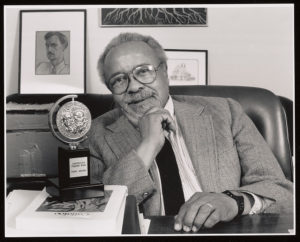The Resident Artist must:
- Identify as BIPOC artist or an artist that is part of the global majority
- Identify as a director and/or choreographer and/or multi-hyphenate artist that includes direction and/or choreography
- Identify as a mid-career artist. We know career stages are hard to pinpoint. Please use your best judgement based on the opportunity to decide if you identify as mid-career. If you would like a definition for some (but not definitive) guidance, you can use this from the 2020 Next Stage Report: Mid-Career: is consistently paid for directing and/or choreographic work. Employed more frequently by intuitional not for profits and early career commercial producers. Supplemental income may include teaching positions, artistic leadership, and commercial associate level work. Additionally, we welcome applicants who have come later to the craft or directing or choreographing. To be considered, the applicant must have been working as a professional director or choreographer for at least 5 years. If you have questions about this eligibility criteria, contact Dani Barlow (contact information below).
- Be interested in exploring artistic direction at a regional theater as a potential career path.
- Be interested in directing or choreographing a production at the host theater within the next three years.
- Have an enthusiasm for work at Actors Theatre of Louisville, interest in working with Robert Barry Fleming and the artistic staff and an interest in working in the Louisville community.
If you have questions about your application, please contact SDCF Foundation Director Dani Barlow at dbarlow@sdcfoundation.org.
Resident Artist Application Questions:
This is a preview of the application questions, please click the link below to access the application on SlideRoom.
- Contact info:
- First name, last name
- Pronouns (optional)
- Contact email address, phone number
- Professional bio and major accomplishments to date. (2,500 characters)
- Why do you feel this is the right time in your career for the Lloyd Richards New Futures Residency? (4,000 characters)
- Applicant’s statement of intent (6,000 characters)
- The statement should:
- Articulate in detail why Actors Theatre of Louisville appeals to who you are as an artist, and the kind of work that interests you. Include in your description your interest in working with Robert Barry Fleming as a mentor and colleague, and why Louisville, KY is a place for you and your work.
- Please be sure to read all aspects of the Program Description to make sure you are speaking to your specific interest and/or experience in the focuses and type of work Actors Theatre of Louisville is doing
- Detail what you are interested in exploring and hope to gain while being in residence at Actors Theatre in terms of your professional development and education
- Articulate in detail why Actors Theatre of Louisville appeals to who you are as an artist, and the kind of work that interests you. Include in your description your interest in working with Robert Barry Fleming as a mentor and colleague, and why Louisville, KY is a place for you and your work.
- The statement should:
- Acknowledgement about access to health insurance and support for travel and housing
- How did you hear about this program?
Applications for the 2022 Richards Residency are now closed.
Background:
This New Futures Residency is named for Lloyd Richards, whose career blazed a trail through our industry. Starting as an actor in 1940s New York, in 1956, Sidney Poitier arranged an interview for Richards with producers to direct Lorraine Hansberry’s new play A Raisin in the Sun. Richards’ work on the production garnered his first of five Tony nominations for Best Direction of a Play; he later won the award in 1987 for his work on Fences. Richards led the National Playwrights Conference (NPC) at the Eugene O’Neill Theatre Center for more than 30 years, developing work with hundreds of playwrights. From 1979-91, he was Artistic Director of Yale Repertory Theatre and Dean of the Yale School of Drama.
Richards was the first Black director to be nominated for and then to win the Tony Award for Best Direction. Aside from his first nomination for Raisin in the Sun, the other four honored his work directing August Wilson’s plays on Broadway. Richards’ collaborations with Hansberry and Wilson sustained his deepest beliefs about our industry: “We must each bring the wonder of our particular cultural heritage to the context of the here and the now. That is American Theatre—theatre which reaches into the ethnic memory of each of us and is informed by its wisdom, form, and artistry, and brings that to the context ‘now,’ where we all dwell, and informs the now, which provokes and enriches us all.”
In addition to his artistic accolades, Richards was a staunch advocate for artists’ rights as workers. A founding member of SDC, Richards served as president from 1970 to 1980. He received the National Medal of Arts in 1993; he died in 2006.
For Lloyd Richards’ full biography, click here.
The 2022 Lloyd Richards New Futures Residency is made possible with support from Miranda Family Fund, Judi & Douglas Krupp, Concord Theatricals, Allison Thomas, as well as support through the SDCF fellowship funds named for Shepard and Mildred Traube and Sir John Gielgud, and many generous individuals.
About Lloyd Richards:
This New Futures Residency is named for Lloyd Richards, whose career blazed a trail through our industry. Starting as an actor in 1940s New York, in 1956, Sidney Poitier arranged an interview for Richards with producers to direct Lorraine Hansberry’s new play A Raisin in the Sun. Richards’ work on the production garnered his first of five Tony nominations for Best Direction of a Play; he later won the award in 1987 for his work on Fences. Richards led the National Playwrights Conference (NPC) at the Eugene O’Neill Theatre Center for more than 30 years, developing work with hundreds of playwrights. From 1979-91, he was Artistic Director of Yale Repertory Theatre and Dean of the Yale School of Drama.
Richards was the first Black director to be nominated for and then to win the Tony Award for Best Direction. Aside from his first nomination for Raisin in the Sun, the other four honored his work directing August Wilson’s plays on Broadway. Richards’ collaborations with Hansberry and Wilson sustained his deepest beliefs about our industry: “We must each bring the wonder of our particular cultural heritage to the context of the here and the now. That is American Theatre—theatre which reaches into the ethnic memory of each of us and is informed by its wisdom, form, and artistry, and brings that to the context ‘now,’ where we all dwell, and informs the now, which provokes and enriches us all.”
In addition to his artistic accolades, Richards was a staunch advocate for artists’ rights as workers. A founding member of SDC, Richards served as president from 1970 to 1980. He received the National Medal of Arts in 1993; he died in 2006.
For Lloyd Richards’ full biography, click here.



